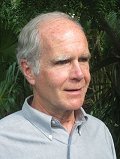 The Ecology of Breast Cancer: The Promise of Prevention and the Hope for Healing is a new book by Ted Schettler, MD, MPH, that makes the case that breast cancer is a disease arising from diverse societal conditions. Although well-recognized risk factors and a person’s lifestyle are important, they simply do not explain why many people develop the disease. Nor do they fully explain breast cancer patterns in populations. “In many ways, breast cancer is a design problem,” Dr. Schettler concludes. “It is not only a disease of abnormal cells but also of communities that we create and live in. Breast cancer is profoundly a public health concern, requiring a public health response. Thinking about this as an ecological challenge helps us identify multi-level interventions that will reduce breast cancer risk and improve outcomes after diagnosis." On this call CHE-cofounder Michael Lerner and Dr. Schettler discussed the themes that emerge in this analysis and opportunities for reducing the burden and impact of this disease.
The Ecology of Breast Cancer: The Promise of Prevention and the Hope for Healing is a new book by Ted Schettler, MD, MPH, that makes the case that breast cancer is a disease arising from diverse societal conditions. Although well-recognized risk factors and a person’s lifestyle are important, they simply do not explain why many people develop the disease. Nor do they fully explain breast cancer patterns in populations. “In many ways, breast cancer is a design problem,” Dr. Schettler concludes. “It is not only a disease of abnormal cells but also of communities that we create and live in. Breast cancer is profoundly a public health concern, requiring a public health response. Thinking about this as an ecological challenge helps us identify multi-level interventions that will reduce breast cancer risk and improve outcomes after diagnosis." On this call CHE-cofounder Michael Lerner and Dr. Schettler discussed the themes that emerge in this analysis and opportunities for reducing the burden and impact of this disease.
Featured Speaker
 Dr. Schettler is the science director of the Science and Environmental Health Network. He also serves as science director of the Collaborative on Health and Environment. He has a medical degree from Case Western Reserve University and a masters in public health from Harvard University. Schettler has addressed the connections between human health and the food, chemical, built and social environments in numerous publications and presentations. He has served on advisory committees of the US EPA and National Academy of Sciences.
Dr. Schettler is the science director of the Science and Environmental Health Network. He also serves as science director of the Collaborative on Health and Environment. He has a medical degree from Case Western Reserve University and a masters in public health from Harvard University. Schettler has addressed the connections between human health and the food, chemical, built and social environments in numerous publications and presentations. He has served on advisory committees of the US EPA and National Academy of Sciences.
The call was moderated by Michael Lerner, President of Commonweal.
